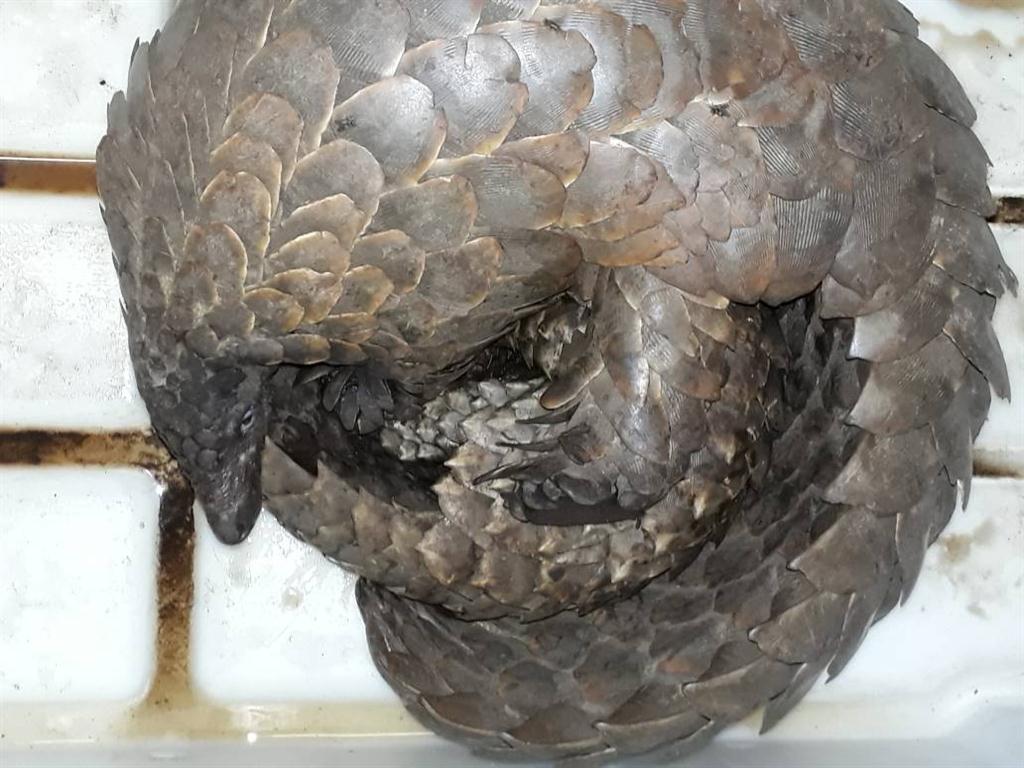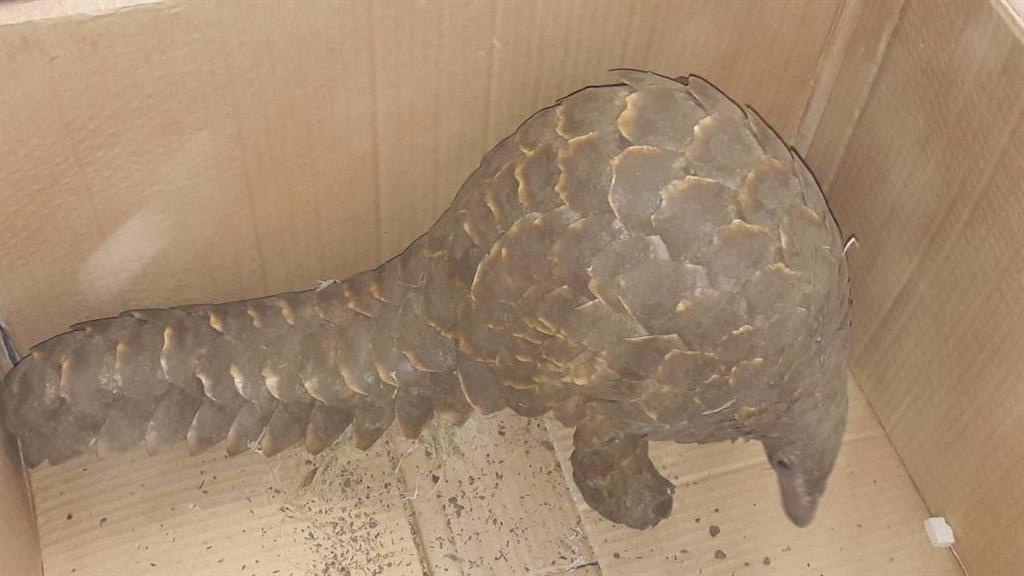Light at the end of the tunnel
A campaign to protect pangolins in Namibia has been enormously successful but concern remains for their safety.
A little more than a year after authorities launched a campaign to tackle the increasing rate of pangolin trafficking in Namibia, it has proven exceptionally successful to date with 112 suspects arrested, 57 cases opened and 34 live pangolins rescued.
Fifty-four percent were opened in the Khomas Region where most of the suspects were arrested, followed by the Kavango, where 18% of cases were opened, Otjozondjupa (12%) and the Zambezi Region (9%).
As per the Namibia Chamber of Environment (NCE), who, together with environment ministry and others, launched the campaign in July 2017, these statistics do not necessarily reflect the localities where the pangolins are captured.
Increased efforts to curtail the trade have shown a clear movement of pangolins from the north and east of Namibia to the main market in Windhoek, from where they are smuggled to Asia.
A report by the NCE on progress of the campaign shows that the reward scheme “had an immediate impact. Within the first two months 15 criminal cases were opened, and 21 suspects arrested. Ten live pangolins were seized.”
By February this year, 37 cases had been reported, and 81 people arrested, with 20 live pangolins seized, health-checked and released at safe sites.
Thirty-four pangolin skins were confiscated by February.
The 'Protect Pangolin' campaign came into effect after a sharp spike in the illegal trade of pangolins became evident, both in live and dead animals.
The NCE explained that in the past, the trade was limited, with a few cases of illegal possession of pangolins reported each year, mostly for own use or the local market.
With the increasing global trade, the characteristics of the Namibian trade changed however.
Dangerous myths
It is estimate that pangolins are illegally traded and trafficked more than any other wild mammals in the world, with more than a million pangolins trafficked to Asia, mainly China, in the past decade.
The main reason behind the booming trade is that scales, made of keratin, are used in traditional Asian medicines and for ornaments and charms, despite the scales scientifically proven to have no medicinal properties.
Further, pangolin meat has become a delicacy and is sold at Asian restaurants at steep prices.
As a result, all eight species of pangolin are listed as threatened Red Data species by the International Union for the Conservation of Nature (IUCN), and all have recently been up-listed to Appendix 1 category under the Convention on International Trade in Endangered Species (CITES).
Namibia responds
Last year, Namibia significantly strengthened its wildlife laws, including penalties for the possession and trade in controlled wildlife products.
The tightening of laws was in direct response to the increase in commercial wildlife crime in Namibia, driven by Asian markets.
Controlled wildlife products in Namibia are all animals listed in Appendix 1 of CITES, with a few additional species.
They include rhinos, elephant, pangolin and carnivores such as cheetah and other vulnerable animals and some plant species.
The NCE noted that the increased recognition of the impact of wildlife crimes, and Namibia's response to tighten laws and penalties to address this upsurge, shows that “Namibians are now very annoyed and unhappy about incentivised commercial wildlife crime driven by Asian markets and incentivised locally by some Chinese nationals.”
Apart from strengthening penalties for people found guilty of possession, dealing, trading, manufacturing, exporting and importing these controlled wildlife products, law enforcement has also seen a significant strengthening at several levels. All these efforts, according to the NCE, have resulted in a marked reduction of the chances of foreign nationals, who are arrested and charged, from obtaining bail.
Further, with prosecutors looking to apply as many laws as possible against accused smugglers or dealers, the chances of being hit by serious penalties have increased.
The Chinese question
In their report, the NCE underline the fact that wildlife conservation and good environmental management in Namibia is seen as a national initiative by all, but that some rotten apples in the Chinese community, are “undermining Namibia's conservation philosophy and approach by incentivising wildlife crimes”.
Many Namibians now view some members of the Chinese community in Namibia as “stealing from Namibia and from rural communities. Unfortunately, the actions of a small number of Chinese has given the whole Chinese community in Namibia a bad name,” the report states.
While the labelling of the entire community is unfair, the NCE notes that this is the result of the small group not being brought under control.
“Because no information on wildlife and other crimes are provided to the authorities by members of the Chinese community in Namibia, the Chinese community is seen as providing protection and shelter to these criminal Chinese elements.”
The NCE recommends that the Chinese community could address this problem by rooting out the culprits in their community, by reporting them to the police or wildlife authorities, or the Chinese embassy.
The NCE further stresses that the solution to wildlife crime is not “to have hundreds of people in jail, but to stop the illegal capture, killing, trade and trafficking in wildlife.”
JANA-MARI SMITH
Fifty-four percent were opened in the Khomas Region where most of the suspects were arrested, followed by the Kavango, where 18% of cases were opened, Otjozondjupa (12%) and the Zambezi Region (9%).
As per the Namibia Chamber of Environment (NCE), who, together with environment ministry and others, launched the campaign in July 2017, these statistics do not necessarily reflect the localities where the pangolins are captured.
Increased efforts to curtail the trade have shown a clear movement of pangolins from the north and east of Namibia to the main market in Windhoek, from where they are smuggled to Asia.
A report by the NCE on progress of the campaign shows that the reward scheme “had an immediate impact. Within the first two months 15 criminal cases were opened, and 21 suspects arrested. Ten live pangolins were seized.”
By February this year, 37 cases had been reported, and 81 people arrested, with 20 live pangolins seized, health-checked and released at safe sites.
Thirty-four pangolin skins were confiscated by February.
The 'Protect Pangolin' campaign came into effect after a sharp spike in the illegal trade of pangolins became evident, both in live and dead animals.
The NCE explained that in the past, the trade was limited, with a few cases of illegal possession of pangolins reported each year, mostly for own use or the local market.
With the increasing global trade, the characteristics of the Namibian trade changed however.
Dangerous myths
It is estimate that pangolins are illegally traded and trafficked more than any other wild mammals in the world, with more than a million pangolins trafficked to Asia, mainly China, in the past decade.
The main reason behind the booming trade is that scales, made of keratin, are used in traditional Asian medicines and for ornaments and charms, despite the scales scientifically proven to have no medicinal properties.
Further, pangolin meat has become a delicacy and is sold at Asian restaurants at steep prices.
As a result, all eight species of pangolin are listed as threatened Red Data species by the International Union for the Conservation of Nature (IUCN), and all have recently been up-listed to Appendix 1 category under the Convention on International Trade in Endangered Species (CITES).
Namibia responds
Last year, Namibia significantly strengthened its wildlife laws, including penalties for the possession and trade in controlled wildlife products.
The tightening of laws was in direct response to the increase in commercial wildlife crime in Namibia, driven by Asian markets.
Controlled wildlife products in Namibia are all animals listed in Appendix 1 of CITES, with a few additional species.
They include rhinos, elephant, pangolin and carnivores such as cheetah and other vulnerable animals and some plant species.
The NCE noted that the increased recognition of the impact of wildlife crimes, and Namibia's response to tighten laws and penalties to address this upsurge, shows that “Namibians are now very annoyed and unhappy about incentivised commercial wildlife crime driven by Asian markets and incentivised locally by some Chinese nationals.”
Apart from strengthening penalties for people found guilty of possession, dealing, trading, manufacturing, exporting and importing these controlled wildlife products, law enforcement has also seen a significant strengthening at several levels. All these efforts, according to the NCE, have resulted in a marked reduction of the chances of foreign nationals, who are arrested and charged, from obtaining bail.
Further, with prosecutors looking to apply as many laws as possible against accused smugglers or dealers, the chances of being hit by serious penalties have increased.
The Chinese question
In their report, the NCE underline the fact that wildlife conservation and good environmental management in Namibia is seen as a national initiative by all, but that some rotten apples in the Chinese community, are “undermining Namibia's conservation philosophy and approach by incentivising wildlife crimes”.
Many Namibians now view some members of the Chinese community in Namibia as “stealing from Namibia and from rural communities. Unfortunately, the actions of a small number of Chinese has given the whole Chinese community in Namibia a bad name,” the report states.
While the labelling of the entire community is unfair, the NCE notes that this is the result of the small group not being brought under control.
“Because no information on wildlife and other crimes are provided to the authorities by members of the Chinese community in Namibia, the Chinese community is seen as providing protection and shelter to these criminal Chinese elements.”
The NCE recommends that the Chinese community could address this problem by rooting out the culprits in their community, by reporting them to the police or wildlife authorities, or the Chinese embassy.
The NCE further stresses that the solution to wildlife crime is not “to have hundreds of people in jail, but to stop the illegal capture, killing, trade and trafficking in wildlife.”
JANA-MARI SMITH





Comments
Namibian Sun
No comments have been left on this article